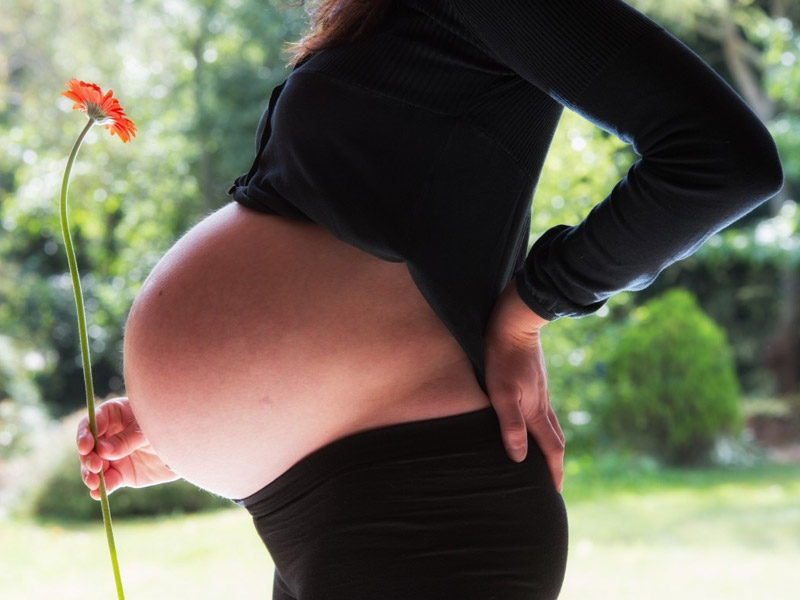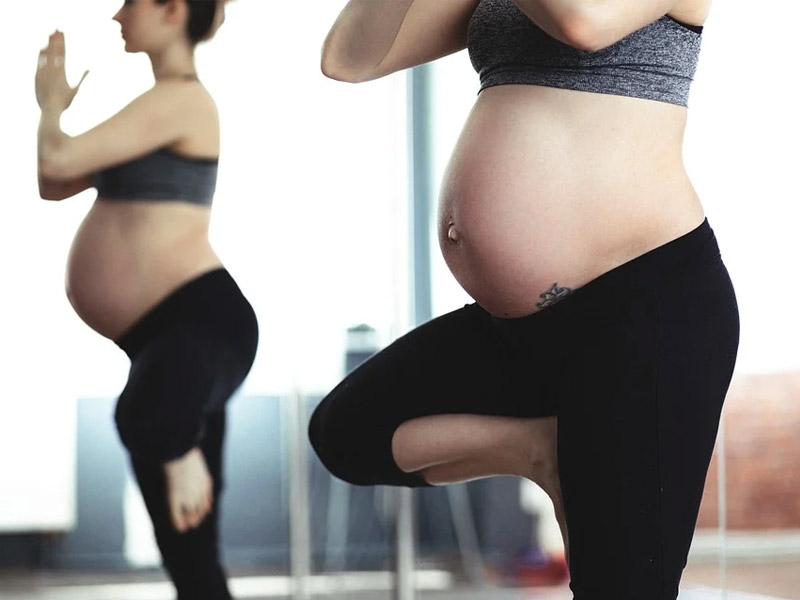Back Pain During Pregnancy
Pelvic or back pain during pregnancy is common, affecting an estimated 80% of women according to Bastiaanssen et al, 2005. Back pain can occur at any time during pregnancy; however, it typically increases during the last trimester, often due to the increase in the weight of the baby. This additional weight places excess stress on the joints, ligaments, intervertebral discs and surrounding muscles, sometimes leading to painful symptoms.
Hormonal changes also play a significant role; levels of oestrogen, progesterone and other hormones increase throughout the pregnancy. One hormone associated with back pain is relaxin. The role of this hormone is to allow the ligaments to stretch and become more lax, something which is essential for safe delivery of the baby. However, this also means that joints and ligaments may become prone to aches and pains and even injury caused by overstretching, hence why some women experience back pain during pregnancy.

Is Exercising When Pregnant A Good Idea?
In most cases exercising safely is a good idea, it helps to keep the mother fit and healthy, improve all round well-being, it can also reduce the risk of back pain and help the post-partum recovery and getting back into shape. Exercise should always be discussed with a midwife or GP as it may not be recommended for high-risk pregnancies.
Tips to Help Avoid and Reduce Back Pain During Pregnancy
- Avoid heavy lifting or carrying any heavy objects, that includes other children. Cuddle time should be seated to ensure additional pressure is not put on the spine.
- When lifting anything, make sure that the knees are kept bent and that the core is engaged, whilst moving into a standing position.
- Ensure that you have a good mattress that offers sufficient support.
- Always sleep on your side and if additional comfort is required, try sleeping on your side with a pillow between the knees or a small towel under your waist as this will help keep your pelvis level and reduce the strain on your back.
- Some women find that a maternity support belt helps to relieve painful symptoms. Research into the effectiveness of such belts is limited as they do not provide relief for everyone.
- Ensure that your bra is the right size and provides sufficient support. As breasts increase in size throughout pregnancy, an ill-fitting bra can cause tightness around the spine and subsequently result in pain.
- Wear flat shoes with good arch support as these will evenly distribute your weight. Wearing heels can be uncomfortable.
- A pregnancy massage can be extremely useful in relieving symptoms. This should be performed by a professional; however if that is not possible, a gentle back massage of the soft tissues of the lower back from a partner can also be soothing and provide pain relief.
- The use of a heat pack or a hot water bottle in the small of the back can help to relieve muscle tension. Hot and cold massages are also known to be effective.
- Practice good posture. Always stand up straight without locking the knees, whilst keeping the shoulders back and relaxed.
- Sit carefully. The chair should be comfortable and support the lower back, many pregnant women find it useful to insert a cushion in the lower back.

Exercises
There are a number of pregnancy exercises that may be helpful to build strength and relieve painful symptoms. It is a good idea to begin by safely strengthening the supportive ‘core’ muscles of the lower abdomen and the pelvic floor, as this will help to support the baby and the back. These exercises should be practised from the early stages of the pregnancy, as this will help to improve the strength and prevent any weakening of these muscle groups.
A physiotherapist or pregnancy yoga instructor should be able to recommend a series of useful exercises to be practised at home. The following are some basic examples:
- Stand with your back to the wall, and then try tilting the pelvis by flattening the small of your back into the wall.
- Lean forward on your hands and knees (similar to a labour position), this can help to take the weight of the baby away from your spine and reduce pressure.
Persistent Back Pain
If symptoms of back pain persist, become more severe, or include any other types of symptoms, it is important to seek medical advice from your midwife or GP, as this could be an indication of early labour or another medical condition.
Our Services
At ProPhysiotherapy, we understand what a unique and special time pregnancy is. It is a highly individualised journey, and no two pregnancies are ever the same. As such, we offer a range of pregnancy-related services to cater specifically for pregnant women and their babies. Our services focus on improving any painful symptoms, providing relaxation, as well as improving fitness and general well-being. Get in touch today to find out more about our pregnancy-related services including obstetric physiotherapy and pregnancy massage.
